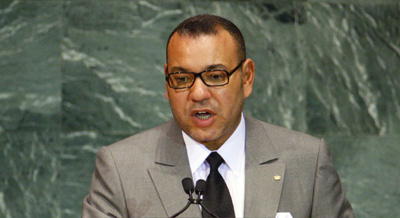New York, September 26, 2010–On the eve of a high-profile conference on press freedom in Rabat, the Committee to Protect Journalists reiterates its call to King Mohammed VI to use his constitutional prerogatives to bring Moroccan legislation in line with international standards for freedom of expression. CPJ also urged the monarch to end the use of the judiciary and other government agencies to harass critical journalists.
The conference, taking place Monday and Tuesday, brings together local and international civil society advocates, journalists, media experts, and representatives of the European Union and the Moroccan government for an exchange of views on “the media potential and the challenges it faces” in Morocco, according to an official announcement made by the organizers. Participants will also discuss “European and international practices and standards.”
“We urge King Mohamed VI to take concrete steps toward the ultimate goal of repealing the restrictive 2002 press law and initiating new measures that conform with international standards for freedom of expression and judicial independence,” said CPJ Middle East and North Africa Program Coordinator Mohamed Abdel Dayem. “Such a move, accompanied by the end of government interference with the press and the protection of our colleagues’ right to access information, would close the gap between official rhetoric about press freedom and the reality in which our Moroccan colleagues operate.”
This week’s conference, which comes as part of “the regular dialogue on human rights” between the European Union and Morocco, occurs eight months after leading Moroccan political parties launched what they called a “national dialogue” on media and society.
In a letter to the king in March, CPJ said that a national dialogue “must be accompanied by concrete reforms, notably a change in policy that ends the use of the judiciary to settle scores with critical journalists.” CPJ has documented numerous cases of politically motivated legal harassment intended to silence critical journalists.
The imposition of some of the highest monetary penalties in the region against those who tackle sensitive issues has had a chilling effect on the press, undercutting official assertions that Morocco affords greater press freedom than other Arab countries. A Casablanca court imposed crippling damages in June 2009 on the dailies Al-Massae, Al-Ahdath Al-Maghrebia, and Al-Jarida al-Oula after they called into question the record of Libyan leader Muammar Qaddafi. Al-Jarida al-Oula closed in May due to financial difficulties.
The recommendations of a CPJ report resulting from a 2007 mission to Morocco remain unrealized, despite government promises at the time to implement them.
